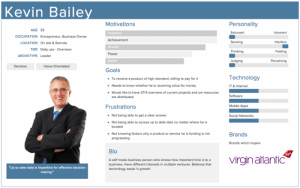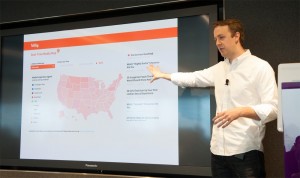— February 5, 2019

StartupStockPhotos / Pixabay
At Calendar we have a fully remote team. They have been outstanding.
We don’t need to invest in a large office. Team members set their own schedules. Thanks to email, Slack, Skype, GoToMeeting, and FaceTime everyone can quickly and easily communicate with each other. There’s even telepresence robots to make you feel like you’re actually in a conference room with your colleagues — and I’m sure the surge in virtual reality will only enhance this in the near future.
Simply put, technology has made it possible to meet with others without the need for travel. And while that definitely can save you time and money, you shouldn’t completely neglect in-person meetings because of the 7 following reasons.
1. Non-verbal cues.
Regardless if you’re meeting with your team, clients, or potential investor body language is extremely important. It’s these non-verbal cues that let the other attendees know how you really feel.
For example, you could tell an employee that they’re doing a good job in an email or phone call. But as you say you start shuffling your feet or covering parts of your body like your threat. This type body language says you’re lying. The employee doesn’t know because they can’t see these non-verbal cure.
In fact, it’s been found that approximately 93 percent of communication effectiveness is determined by nonverbal cues. That’s not limited to only strangers. Studies show that even those closest to you can’t interpret your emotions over channels like emails.
2. Reduced distractions.
I’ve definitely been guilty of this in the past. I’m on the phone with a colleague or partaking in a weekly team meeting and I start to multitask. Instead of being an engaged participant I’m checking my emails or working on another project.
A survey from InterCall found that I wasn’t the only one guilty of getting distracted during virtual meetings.
The InterCall survey reported that 62 percent of respondents said they would log on from their office. Additionally, more than a quarter of respondents claimed that they were attending from bed (14 percent), their car (9 percent) or from the beach or swimming pool (5 percent).
While there are still distractions during in-person meetings, it’s much easier to remove them by asking attendees to keep their phones off the table or turn-off their notifications.
I would even say that if you have basic etiquette knowledge you just know that it’s rude to look at your phone during a meeting. For instance, do you think that you’ll snag a high-profile customer if you spent half of your lunch meeting starting at your phone? I doubt it.
3. Emotions are contagious.
Have you ever been a bit down only to have your spirit lifted by someone who is positive and optimistic? This phenomenon is known as “emotional contagion,” and simply means that emotions are contagious.
So if you want to get the other meeting attendees excited, interested, motivated, and enthusiastic — then face-to-face meetings provide a more valuable opportunity to spread these attitudes.
4. Encourages small talk.
I know plenty of people who can’t stand small talk because they think it’s just fluff. Personally, I think small talk is beneficial because it helps establish trust. Exchanging pleasantries and breaking the ice is one of the best ways to build trust before diving into a deep conversation. If you get to know someone a little better you’re more relaxed and have some common ground to build-up from.
In fact, research from Princeton University found that chit chat and small talk establishes a social bond.
You can definitely have some small talk during remote meetings, but they’re more natural and effective in-peron. Let’s say you have a schedule call with a client. You’ve both only alloted for a 15-minute call. Once the 15-minutes is up the call is over.
But, what if you met them for lunch? After your 15-minutes of talking business, you may spend the next 30-minutes indulged in small talk which helps you get to know each other personally.
5. You’re off the record.
Maybe it’s because you can read those non-verbal cues.We tend to be a bit more open and free when meeting with others in-person. I think it’s because you realize that the other individuals(s) aren’t going to take your words out-of-context.
It’s when we’re more comfortable that we allow our personality to come through. This helps us determine whether or not we like the other person we’re meeting with. I’ve hired plenty of employees just because I clicked with them personally.
6. Builds closer relationships.
There are certain moments you can’t recreate virtually. For example, you and a potential investor tried out a new seafood restaurant that was phenomenal. Regardless of how the rest of the meeting went you’ll always have that shared experience.
Meeting face-to-face gives you the chance to share your journey and emotions with emotions. As a result, this builds stronger and longer-lasting relationships.
7. Easier to make an impression and sell yourself.
Let’s say that you’re having an issue with your laptop. You could call tech support or take it in person. While both offered excellent customer service and got the problem resolved, which experience had the stronger impression?
I would go out on a limb and say the in-person experience. That’s because you actually get to interact with individual repeating your computer. You could see their body language and the steps they took to fix your laptop. And, more importantly, you could put a name to the face.
Meeting with others face-to-face gives you a chance to make an impression and sell yourself whether if it’s because they can see your enthusiasm or because they’re fixated on your attire. For example, even though you’re wearing a navy suit, maybe the client you’re meeting will never forget about that wild and brought orange tie you were wearing. You can’t see that over a Skype call.
Business & Finance Articles on Business 2 Community
(66)








